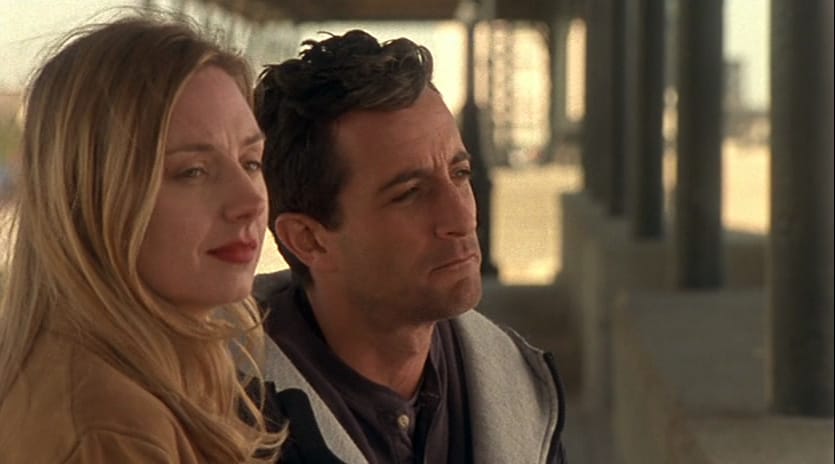Read also:
How to Watch FX Live Without CableHow To Watch AMC Without CableHow to Watch ABC Without CableHow to Watch Paramount Network Without CableBefore he passed away at the age of 46, Philip Seymour Hoffman starred in 52 feature films. Starring roles, character pieces, chameleon work—he left a legacy nearly unmatched in both quality and quantity. Now, with P.S.H. I Love You, Jonah Koslofsky wafts through the cornucopia of the man’s offerings.
Erin (Hope Davis) and Sean (Philip Seymour Hoffman) aren’t meant to be. We know this from the opening scene: he, a schlubby Marxist, announces he’s finally leaving. Even if he’s left and come crawling back before, this time he means it! Erin goes back inside their Comm Ave brownstone and rips up his “Think local, act global” bumper sticker attached to their – her – fridge.
She just can’t catch a break. Once a promising Harvard med student, Erin now works as a nurse. Her father’s unexpected and untimely passing has disrupted whatever trajectory she’d plotted for herself. But just as you’re settling into her story, director-editor Brad Anderson cuts away to Alan (Alan Gelfant), a plumber at the Boston Aquarium. Well, he’s a plumber right now, but he’s studying to be a marine biologist. He lives with his brother and longs to escape the same profession that defined his father.
Next Stop Wonderland is an American rom-com riffing on the French New Wave, specifically the works of Jacques Demy – our dual protagonists don’t meet until very late in the film, by the time we’ve already been convinced that they’re perfect for each other. Anderson and co-writer Lyn Vaus come up with a bevy of near-meet cutes for the pair: both go to a party at the aquarium, they’re always taking the same train, and so on. Yet they can’t quite connect.

They get closest after Erin’s mother places a personal ad in the newspaper for her daughter – I guess this was the late nineties equivalent of setting up a Tinder profile for someone. Alan’s brother and their blockheaded friends (including a young H. Jon Benjamin) notice, and start a competition in their group over who can “score” first. Alan wants no part of it. No suitor is successful (obviously), but the ensuing montage of Erin going on a slew of dates is the quirkiest Wonderland ever gets.
For the most part, we’re just watching these people go about their lives. When we follow Erin, this is engaging and rewarding – Davis makes Erin’s dry melancholy quite captivating. It never feels like her cynicism and sadness is unwarranted. At the same time, you root for her to find some way to be ok. On the other hand, Alan’s stuff just isn’t as good. Gelfant can’t quite find the charming everyman this role requires, and the writing has his character getting involved in a mob-based act of aquarium espionage. It’s just a little too silly and unbelievable for this particular movie.
The movies Wonderland pulls from are so good that you can’t help getting wrapped up in its satisfying conclusion.
Together, they make a film that doesn’t really add up to its influences. Anderson’s dizzying, “naturalistic” cinematography is a blatant imitation of Jean-Luc Godard, but it doesn’t enhance this material. Still, the movies Wonderland pulls from are so good that you can’t help getting wrapped up in its satisfying conclusion. Because of the cross-cutting structure, it’s easy to buy that Erin and Alan are a match by the time they finally collide. We’ve gotten to know both of their wants, and what they’re capable of giving to each other – they truly seem to fit together.
And Hoffman? He’s not here much, but he’s always funny when he does pop up, playing a caricature of the activists he’d later interview in The Party’s Over. Then again, Sean doesn’t have much of a backbone, and he eventually winds up getting a job as a pizza delivery driver. Hoffman looks like he’s having a good time as the “idealistic” and almost certainly insufferable ex, his character another entertaining interlude in a film mostly comprised of entertaining interludes. I did find myself wishing he’d been in more of it – then again, the whole point is that he and Erin don’t belong together.